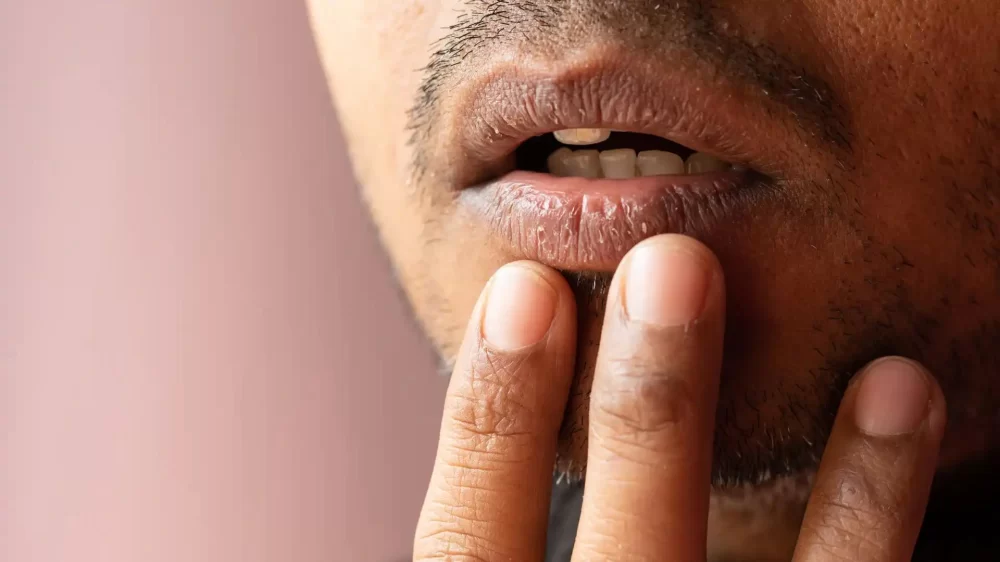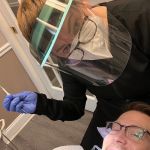
- Understanding Dry Mouth Caused by Medication
- Common Medications That Cause Dry Mouth
- Effective Treatments for Medication-Induced Dry Mouth
- Practical Tips and Home Remedies
- Real-Life Stories and Professional Advice
1. Understanding Dry Mouth Caused by Medication
Dry mouth, medically known as xerostomia, is a common side effect experienced by many individuals taking certain medications. It occurs when the salivary glands produce insufficient saliva to keep the mouth moist. This lack of saliva can lead to discomfort, difficulty swallowing or speaking, increased risk of cavities, and even oral infections.
Medications interfere with saliva production in various ways, and understanding this connection is vital for effective management. Dry mouth caused by medication can severely impact a person’s quality of life, making it essential to explore practical treatment options that provide relief and protect oral health.
1.1 The Importance of Saliva in Oral Health
Saliva serves multiple critical functions, including lubricating the mouth, aiding digestion, and protecting teeth against decay by neutralizing acids and washing away food particles. When saliva production diminishes, these protective effects weaken, leaving the mouth vulnerable.
Recognizing the symptoms of dry mouth early—such as persistent dryness, sore throat, or cracked lips—can help patients seek timely treatment and avoid complications.
2. Common Medications That Cause Dry Mouth
Many prescribed drugs are linked to dry mouth as a side effect. These include:
2.1 Antidepressants and Anti-anxiety Medications
Selective serotonin reuptake inhibitors (SSRIs) and tricyclic antidepressants often reduce saliva flow, causing dryness. Patients on these medications commonly report dry mouth symptoms.
2.2 Antihistamines and Decongestants
Medications used for allergies or colds frequently have drying effects. They reduce secretions in the body, including saliva, contributing to dry mouth.
2.3 Blood Pressure and Muscle Relaxants
Certain blood pressure drugs and muscle relaxants can decrease saliva production, adding to oral discomfort for patients on long-term treatment plans.
3. Effective Treatments for Medication-Induced Dry Mouth
Treating dry mouth caused by medication involves a multi-faceted approach that combines lifestyle adjustments, natural remedies, and professional interventions.
3.1 Saliva Substitutes and Stimulants
Over-the-counter saliva substitutes mimic natural saliva and provide temporary relief. Additionally, medications like pilocarpine and cevimeline stimulate salivary glands to increase saliva production, but these require a doctor’s prescription and supervision.
3.2 Medication Review with Healthcare Providers
Consulting your healthcare provider to review current medications can sometimes reveal alternatives with fewer drying side effects. Adjusting doses or switching medications might significantly reduce symptoms.
3.3 Professional Dental Treatments
Regular dental visits are critical for managing dry mouth. Dentists can recommend fluoride treatments, special mouthwashes, and customized dental care routines to protect against cavities and infections associated with dry mouth.
4. Practical Tips and Home Remedies
In addition to professional treatments, simple daily practices can greatly improve comfort and oral health for those experiencing medication-induced dry mouth.
4.1 Staying Hydrated
Drinking water frequently throughout the day helps keep the mouth moist. Sipping water before, during, and after meals eases swallowing and reduces dryness.
4.2 Chewing Sugar-Free Gum or Lozenges
Chewing stimulates saliva production. Choosing sugar-free gum or lozenges, especially those containing xylitol, can promote saliva flow and reduce cavity risk.
4.3 Avoiding Irritants
Limiting caffeine, alcohol, and tobacco use prevents further drying of the oral tissues. These substances exacerbate dry mouth symptoms and increase oral health risks.
4.4 Using a Humidifier
Running a humidifier at night can add moisture to the air, which helps alleviate mouth dryness, especially for those who breathe through their mouth during sleep.
5. Real-Life Stories and Professional Advice
Take the case of John, a 62-year-old man who developed severe dry mouth after starting blood pressure medication. After discussing with his doctor and incorporating saliva substitutes alongside regular hydration and sugar-free gum, John experienced significant improvement in comfort and oral health.
Another example comes from an online support community where many shared success with natural remedies like herbal rinses and lifestyle changes, all supplemented by professional dental care. These stories emphasize the importance of a personalized approach tailored to each individual’s medication and health status.
For those seeking trusted products and expert guidance, Dentistry Toothtruth provides tailored recommendations for managing medication-induced dry mouth effectively. Their professional insights can help navigate treatment options and improve daily oral comfort.
Managing dry mouth caused by medication requires patience and a comprehensive strategy. With the right combination of professional care, lifestyle adjustments, and natural remedies, patients can regain oral comfort and protect their dental health.







 Samson Wahl & Associates5.0 (6 review)
Samson Wahl & Associates5.0 (6 review) Pro Dentists of Buford4.0 (575 review)
Pro Dentists of Buford4.0 (575 review) Noelck & Associates Dentistry5.0 (140 review)
Noelck & Associates Dentistry5.0 (140 review) Chalet Dental Care5.0 (739 review)
Chalet Dental Care5.0 (739 review) Growing Smiles Pediatric Dentistry - Garner Station5.0 (15 review)
Growing Smiles Pediatric Dentistry - Garner Station5.0 (15 review) Dr. David Miller DDS5.0 (1 review)
Dr. David Miller DDS5.0 (1 review) The Importance of Oral Health Education During Pregnancy for a Healthy Pregnancy
The Importance of Oral Health Education During Pregnancy for a Healthy Pregnancy Best Tips for Brushing Your Teeth Properly for Healthy Gums: Essential Techniques for Oral Health
Best Tips for Brushing Your Teeth Properly for Healthy Gums: Essential Techniques for Oral Health Why Skipping Dental Checkups Can Lead to Bigger Oral Health Problems
Why Skipping Dental Checkups Can Lead to Bigger Oral Health Problems Advantages of Porcelain Dental Restorations
Advantages of Porcelain Dental Restorations How Can Diabetes Cause Tooth and Gum Problems? Preventing and Managing Oral Health Issues
How Can Diabetes Cause Tooth and Gum Problems? Preventing and Managing Oral Health Issues Healthy Habits for Promoting Good Oral Health and Hygiene: Tips for a Healthy Smile
Healthy Habits for Promoting Good Oral Health and Hygiene: Tips for a Healthy Smile